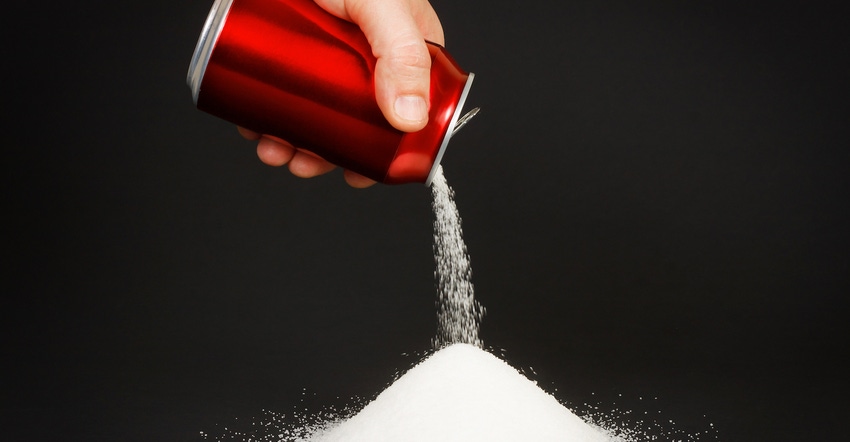Study: Taxes on sugary drinks decrease sales, but do they improve health?
Do taxes on sugar-sweetened beverages improve health? The jury is still out, per a new study.

A new study commissioned by the World Health Organization showed taxes on sugar-sweetened beverages (SSBs) decrease sales by about 15% (JAMA Netw Open. 2022;5[6]:e2215276). The research, however, stopped short of determining whether SSB taxes decrease consumption and improve health.
Per the National Institutes of Health (NIH), added sugars comprise about 15% of Americans’ daily caloric intake—an amount that exceeds the recommended daily limit on added sugar of no more than 10% of calories. The Centers for Disease Control and Prevention (CDC) points to SSBs as the leading source of added sugars in the American diet, accounting for nearly a quarter of the average daily intake of added sugars.
Excessive sugar intake, can lead to serious health problems such as obesity and cardiovascular disease, health officials reported.
According to the University of North Carolina’s Global Food Research Program, more than 45 countries, including eight jurisdictions in the United States, have implemented excise taxes on sugary drinks—many with the goal of curbing potential health problems associated with high sugar intake. In 2021, several states, including New York, Washington and Hawaii, introduced statewide legislation that would impose taxes on drinks that contain a certain amount of sugar per serving.
The present study, a systematic review of 86 studies and a meta-analysis of 62 studies published in JAMA Network Open, set out to determine the effectiveness of SSB taxes, including how SSB taxes are associated with prices, sales, consumption, diet, body weight, product changes, unintended consequences, health and pregnancy outcomes.
Early studies, the authors wrote, tapped price data and simulation studies in lieu of real-world SSB taxes.
“There is now a critical need for the synthesis of literature on the outcomes of recently implemented SSB taxes to inform decision-making about the use of fiscal policy to create incentives for improving diet and health,” the authors wrote.
Results of the study suggest SSB taxes reduce sales of those beverages by approximately 15%, with no evidence to suggest consumers are swapping their sugary drink of choice with an alternative beverage.
Decreased sales, however, don’t affirm decreased consumption. Data around the impact of SSB taxes on consumption were insufficient to determine whether sugary drink taxes lower actual intake of the beverages. The researchers also identified “unintended consequences,” such as evidence of cross-border shopping and reduced revenue at local retailers as a result of SSB taxes.
The study also could not determine how changes in SSB taxes impacted dietary intake, BMI and health outcomes.
“There is conclusive evidence that SSB taxes are associated with higher prices of taxed beverages and lower sales, suggesting that consumers respond to economic interventions,” researchers wrote, adding that “large representative studies to identify changes in SSB consumption for both children and adults are currently lacking” and “longer-term studies are needed to assess how changes in SSB taxes are associated with dietary intake, BMI and health outcomes.”
About the Author(s)
You May Also Like






